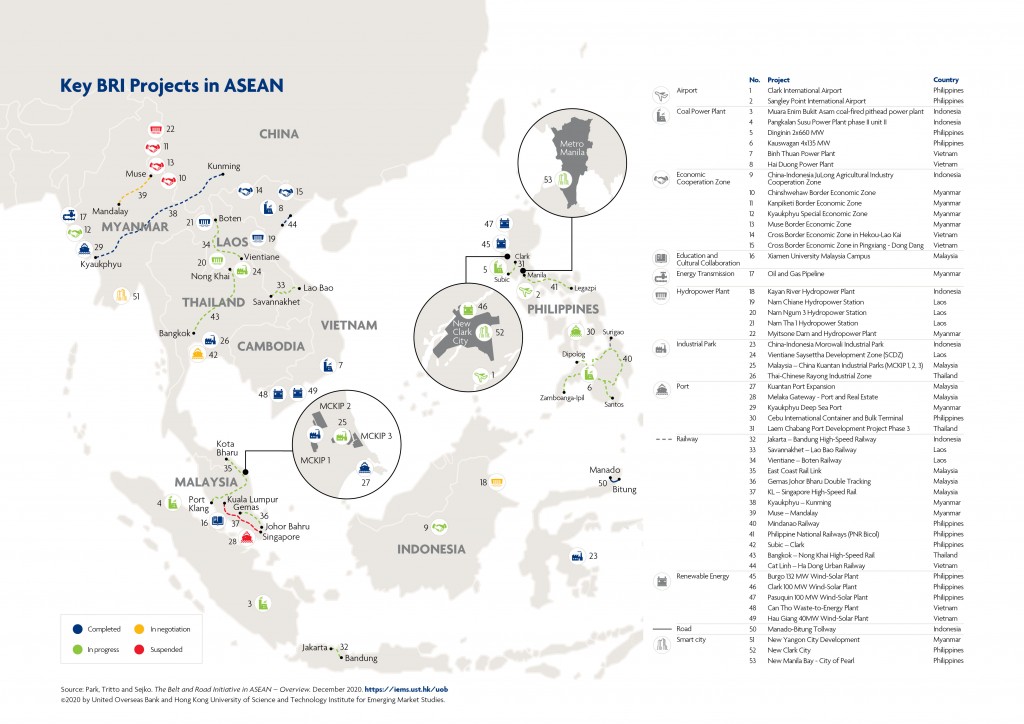The Belt and Road Initiative in ASEAN - Overview
HKUST IEMS Research report No. 2021-03
SHARE THIS

China’s Belt and Road Initiative (BRI) is enhancing development prospects and creating new business opportunities in ASEAN, one of the world’s most dynamic regions. Announced in 2013, the BRI is an ambitious plan to promote economic cooperation with countries around the world that has increasingly defined mainland China’s global engagement. The BRI’s official goals are to promote five connectivities: policy coordination, facilities connectivity, unimpeded trade, financial integration, and people-to-people bonds. Under the Initiative China has helped to finance large infrastructure projects with the support of its state-owned banks and sovereign wealth funds and encouraged mainland Chinese firms to undertake FDI projects in participating countries. These projects are establishing a network of transnational economic corridors, multimodal land and maritime routes, oil and gas pipelines, and electrical grids that assist mainland China and participating countries to hedge against the inherent geopolitical risks of single trade routes. The ambitious scale and scope of the Initiative means that multinational and domestic firms alike should have a keen interest in monitoring new business opportunities created by BRI projects. At the same time, they should recognise the challenges of making investments in specific Belt and Road countries.
Key BRI projects in ASEAN
Click to enlarge.
Download the above infographic in high-res here (PDF).
The report is featured on the ARX Series in December 2020 on CFA Institute's Asia-Pacfic Research Exchange, a a research hub that brings together like-minded stakeholders in the finance and investment management industry to share, learn, and engage on industry topics and trends specific to the Asia-Pacific region.
About this research project
UOB Hong Kong collaborated with the Institute from 2018 to 2020 to conduct a research project titled “the Belt and Road Initiative in ASEAN”. It covers six emerging markets in ASEAN, including Indonesia, Malaysia, Myanmar, the Philippines, Thailand and Vietnam. It aims to provide insights into the political, institutional, and environmental factors that affect the success of the Belt and Road Initiative projects in these markets and the potential for foreign direct investment opportunities.
The project delivered 1 overview reports and 6 country reports, with a timely update on COVID-19’s impact on the respective countries as well as their BRI participation is also included.
Acknowledgment
This research is supported by the Strategic Public Policy Research Funding Scheme from the Central Policy Unit of the HKSAR Government. More >>
Get updates from HKUST IEMS







